Department of Theatre Programs
Information about our current Majors and Minors.

Admission to all Department of Theatre Major degree programs is by audition, or portfolio review, only.
Requirements for declaring minors vary by program and are specified below.
All Kean students are eligible to audition for the Department's MainStage productions while they are enrolled, including freshmen, students from other majors, and part-time students.
Theatre majors and minors are encouraged to take advantage of opportunities with Premiere Stages, the professional AEA company in residence at Kean, whether that be through paid summer internships (Artistic/Literary, Box Office/Marketing, Education/Audience Engagement, Production, Stage Management and Theatre Management) or understudying. Other collaborations allow Premiere Stages to recognize Theatre student achievement (like the Bauer Boucher Playwriting Award) and professional development through master classes and workshops with industry professionals.
Theatre students must maintain the minimum gpa required for their degree program and participate in the Assessment for Student Success program through annual check-ins with Theatre faculty in the form of practice interviews, mock auditions and portfolio presentations, reflective exercises, and presentation of "Who Am I as an Artist?" during senior year.
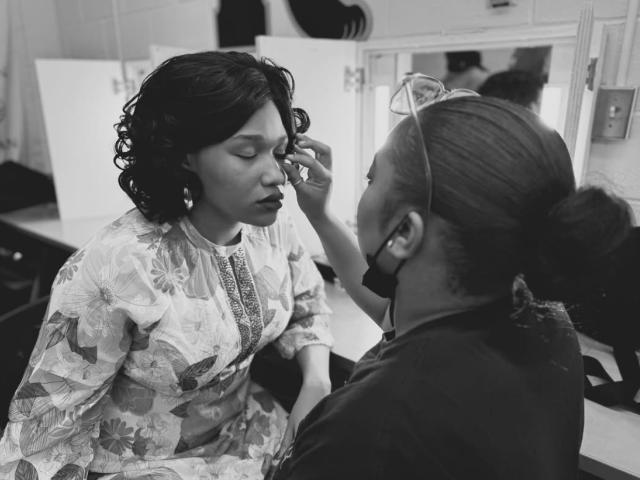
Kean's B.A. In Theatre allows the student to explore seven different areas of theatre studies: Performance, Design, Technology, Theatre in the Community, Administration, Directing/Playwriting, and Voice and Movement. Using these and 24 additional credits of a foundational core set of courses, the student is able to identify specific theatrical concentrations that can be explored in free electives. The free electives also afford the option for a second major or a minor.
The B.A. In Theatre culminates in the Senior Seminar in Theatre (THE*4900), a capstone experience that provides career preparation and a final project synthesizing all that's been learned in Theatre coursework, behind-the-scenes, and/or onstage in public performances.
This degree is for the student who wants to be a well-rounded theatre practitioner, an experienced theatre artist in many facets of the artform, and a graduate with broad-based knowledge in Theatre history, dramatic literature, and script analysis.

Kean's BFA in Theatre Performance is designed to grant highly specialized training for the pre-professional actor. Focused on building the Actor's Toolbox, the curriculum includes improvisation, period acting styles (Ancient Greek, Commedia dell'arte, Shakespeare, Restoration), acting for the camera, dialects, and audition techniques. Rather than prescribe to one type of actor training, the BFA includes study of multiple contemporary acting techniques, providing exposure to most of the acting theorists used today so that the actor can pick and choose between the methods that are appropriate to the individual's sensibilities and specific projects.
A sequence of courses focuses on the blending of vocal and movement training, allowing the actor to integrate use of voice, speech, and physicality. Private voice lessons and dance courses assist the actor with expressiveness and exposure to genres of music and styles of dance. Students are encouraged to study abroad for a semester, or participate in 10-day TraveLearn excursions, to build a global connection to theatrical performance.
BFA actors are required to audition for all mainstage productions beginning in their first year, with freshmen frequently cast. Minors in Dance, Acting for the Camera, and Arts Entrepreneurship are encouraged.
Acting as a Profession serves as the senior capstone course so that students are armed with websites, social media, audition materials, and a well-stocked arsenal of monologues, reels, and musical theatre songbooks. When appropriate, BFA students are able to participate in the Senior Showcase-- a live event with invited industry professionals, or a professionally crafted video package distributed to agents and casting directors, shining the spotlight on graduates entering the profession and ready for a successful career.
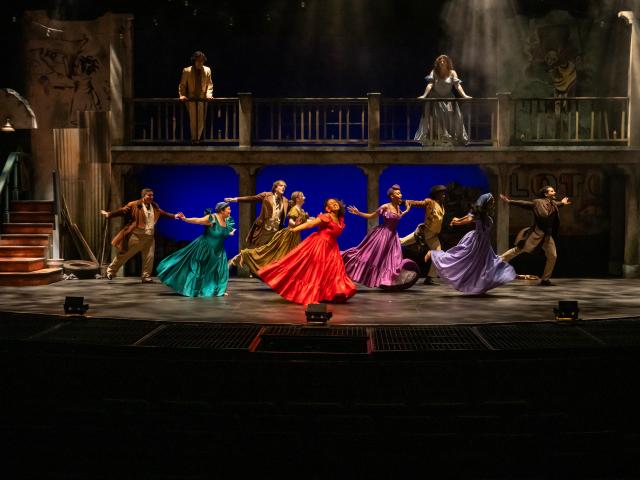
Kean's Musical Theatre Option contains curriculum meant to turn the actor into a triple-threat, with coursework in singing, dancing, and acting techniques. Private voice lessons are offered for at least six semesters, and dance training includes musical theatre dance, tap (I and II), jazz, ballet, and other genres. The strength of the Musical Theatre program is in its four-prong approach to actor training: Period Acting Styles, Contemporary Acting Techniques, Musical Theatre Workshop, and Scene-to-Song-- all courses meant to create a multi-dimensional musical theatre performer.
Period Acting Styles ensures that the Musical Theatre actor can be successful regardless of what performance opportunity comes their way: Greek Tragedy, Commedia Dell'Arte, Shakespeare, or Restoration. Contemporary Acting Techniques expands the actor's awareness of many approaches to scene study-- from Meisner to Meyerhold, from Stanislavski to Spolin. Musical Theatre Workshop, taken twice, eliminates the spectacle often associated with musical theatre and instead focuses on the actors' rehearsal process for a concert production from the musical theatre canon. Scene-to-Song recognizes that there are two modes of communication required of the musical theatre actor: traditional dialogue and singing the song. This course builds the actor's ability to switch between these modes with skill and effectiveness.
In order to create actors capable of the full spectrum of performance repertoire, BFA students in the Musical Theatre Option are required to audition and perform as-cast in mainstage productions.
Like the regular BFA in Performance, Musical Theatre students take Acting as a Profession in their senior year so that students are armed with websites, social media, audition materials, and a well-stocked arsenal of monologues, reels, and musical theatre songbooks. When appropriate, BFA students are able to participate in the Senior Showcase-- a live event with invited industry professionals, or a professionally crafted video package distributed to agents and casting directors, shining the spotlight on graduates entering the profession and ready for a successful career.
Kean's BFA in Theatre Design & Technology prepares the student for careers in theatrical design (costumes, scenery, props, sound, and lighting), as well as technical direction, stage management, electrics, carpentry, scenic artistry, and related technologies. With the Department's core set of foundational courses, the BFA D/T student is prepared as a knowledgeable theatre practitioner, well-poised for specialization in two design/tech areas. Through mentorship by the design/tech faculty and staff, students are guided through a curriculum that includes extensive experience in Theatre Lab and academic credit for practicum experiences on mainstage productions.
Students are invited to begin working on productions upon arrival, with freshmen taking on significant roles behind-the-scenes. By the sophomore year, students are serving as assistant designers and emerging leaders in their fields. Juniors and seniors are often offered mainstage design positions, when appropriate, developing an undergraduate portfolio with impressive credits showcasing high production values. Seniors enroll in Portfolio Preparation for the Artist to build a bridge between the university experience and the profession.

Students majoring in the following College of Education programs may choose Theatre as their 15-credit Content Area:
-
Early Childhood Education - P-3 TSD
-
Elementary Education - K-6 TSD
-
Elementary Education - K-6 Bilingual
The Content Area in Theatre addresses pre-service teachers’ interests in bringing Theatre into the lives of their P – 6 students. This option offers a foundational knowledge of Theatre fundamentals as well as coursework in Theatre for Young Audiences, Creative Drama, and Topics in Theatre Education. Students from the College of Education who choose the Theatre Content Area are able to serve as an arts education resource in the districts where they are eventually employed, often responsible for directing the annual school play.
Admission to the Theatre Content Area is by audition only. Interested Education Majors should contact Professor Rachel Evans.
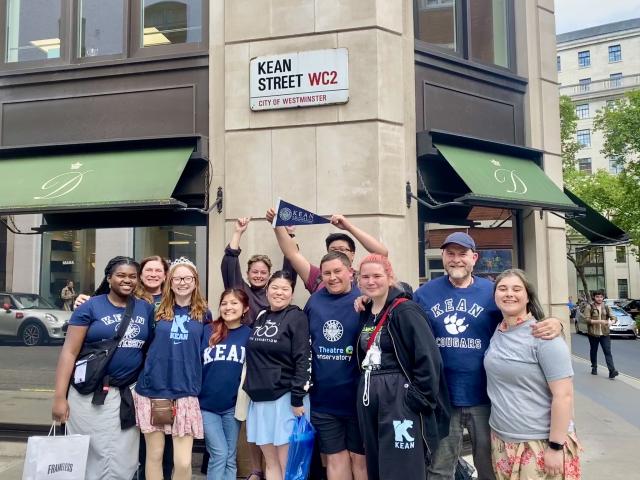
The Minor in Theatre blends theory and practice by requiring a core set of courses fundamental to the art of theatre: Introduction to Theatre, Acting 1, Technical Theatre Production, and Theatre Lab. The remaining credits of the minor are dedicated to elective courses, allowing each student to tailor the program to their needs and interests in conversation with their minor advisor. Interested students should contact the Department of Theatre directly.
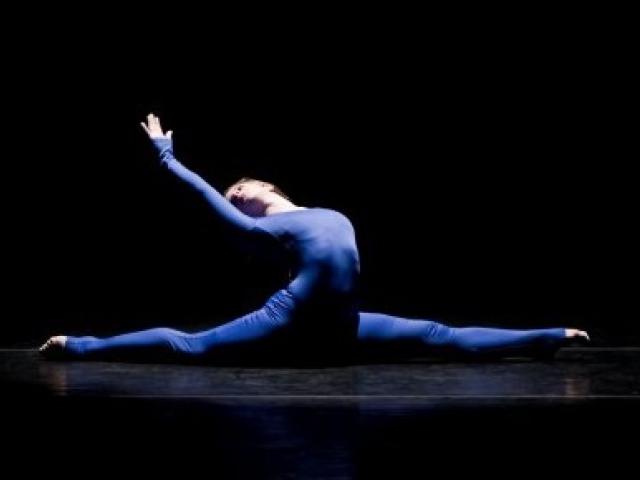
The Department of Theatre's Dance Minor is designed to develop the skills of both the pre-professional and the beginning dancer by providing a strong foundation in dance genres, Dance History, and Dance Composition.
The program is committed to developing the dancer as a complete artist with a full understanding of the technique and creativity involved in the art of dance. In this pursuit, the minor can include Modern, Jazz, Ballet, Latin dance, musical theatre dance, tap, movement improvisation, and creative movement. Courses in Special Topics in Dance are offered periodically to expose students to aspects of dance studies not covered by the regular rotation of the curriculum.
Admission to the Dance Minor requires an interview with the Dance Minor Coordinator, Prof. Holly Logue.
The Dance Minor is a useful addition to any major, especially those in Athletic Training, Communication, Music, Physical Therapy, Recreation Administration, Theatre, and anything based in Biology, Anatomy, or Physiological fields.
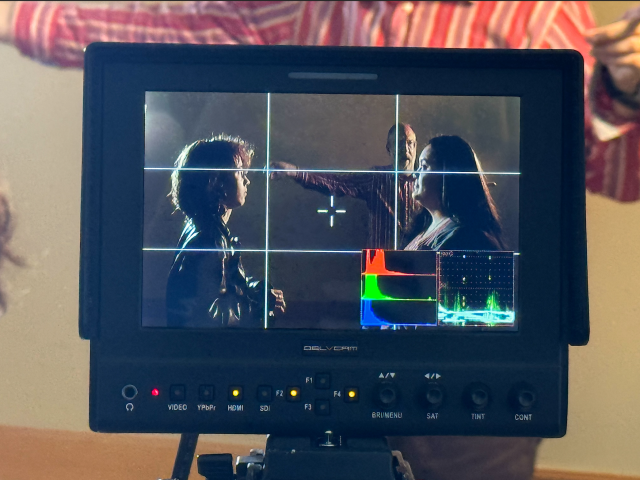
The minor in Acting for the Camera focuses on building the skills required for the specific medium of film and television acting. This includes learning foundational acting skills, the fundamentals of video production, and specialized technique courses in Acting for the Camera. The remaining credits are dedicated to a guided elective allowing the student to tailor the minor to a focused skill in consultation with the minor advisor.
In recognition of our multi-hyphenate world, this program prepares students to integrate camera acting skills into their field of focus. For existing BA and BFA Theatre majors, this specialized minor provides specific focus in another entertainment industry story-telling medium which provides ample work opportunities in this region. For students who major in communication and media, or in other fields, this program allows an experience with the tools needed to build clear characters and storytelling for film and television.
Interested students should submit a short self-taped video, via email to the Acting for the Camera Coordinator, containing the following information:
-
Introduce their name, and their major;
-
A 30 second statement of interest making a connection between the minor and their major;
-
A 60 second monologue of their choice, stating the names of the character and the script.
This self-tape requirement for admission to the minor is in place to get a sense of students’ willingness to put themselves on camera, and to provide an opportunity to succinctly draw a connection between the minor and their major.

The Arts Entrepreneurship Minor is housed in the College of Business Department of Management, and is supported by the College of Liberal Arts Departments of Theatre, Music, and Fine Arts. The minor focuses on cultivating innovative ideas, developing and instilling entrepreneurial characteristics and competencies, and fostering the integration of entrepreneurial theory and practice. Aspiring Entrepreneurs learn to manage opportunities for success and participate responsibly in the global arts community. While there are different types of entrepreneurship, this program focuses on Innovative and Social Entrepreneurship with tracks specifically for students pursuing Arts and related creative degree majors.
Students in non-business majors have a strong demand for opportunities to promote and exercise their business ideas. This program creates a foundation for students that do not have business backgrounds, providing the fundamental tools needed to pursue a variety of career and personal options with confidence.
The curriculum is designed to give students a solid foundation in Business Knowledge and Practices specific to their area of interest and Arts Major, with a concluding course that includes opportunities for students to develop their own business plan. Although it is not required, an Entrepreneurship Internship course is offered as an elective.
To declare this minor, interested students should inform their major advisor, and contact the Department of Management directly.